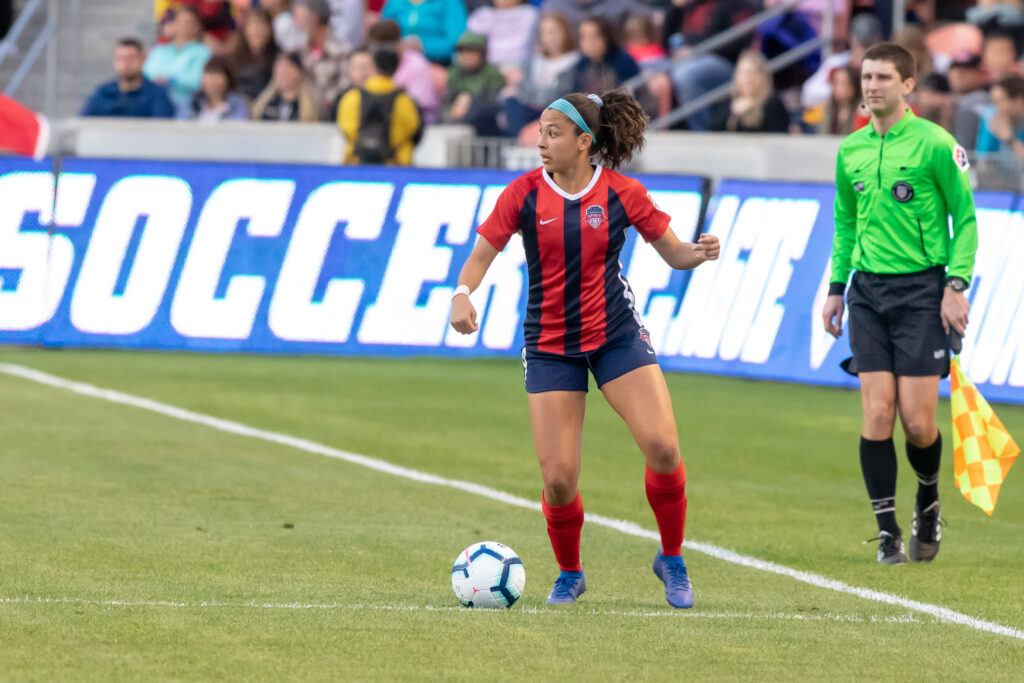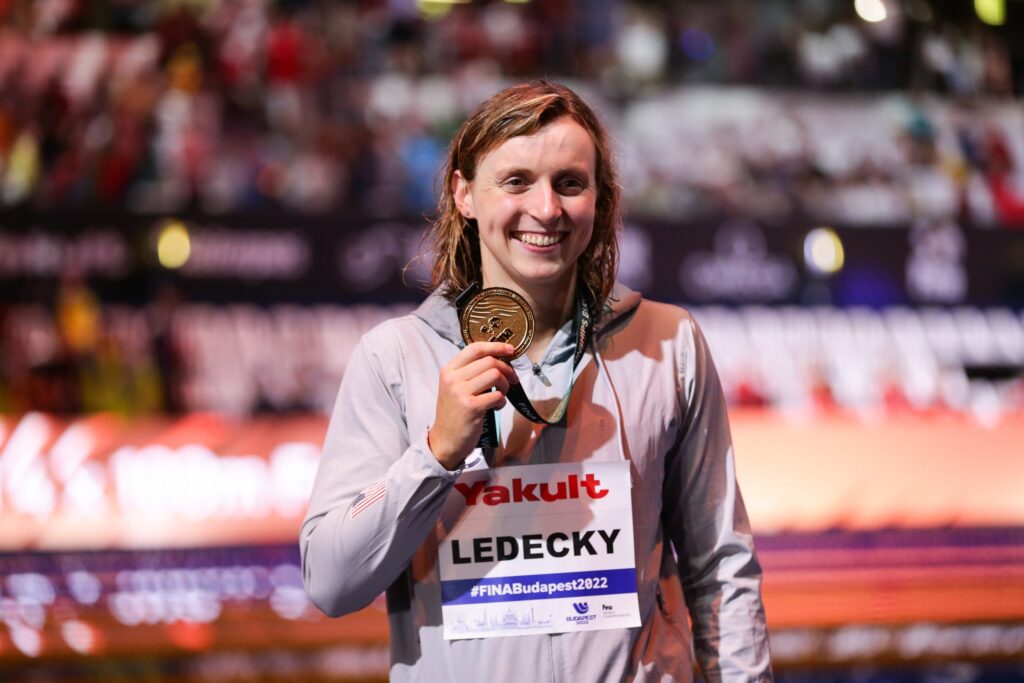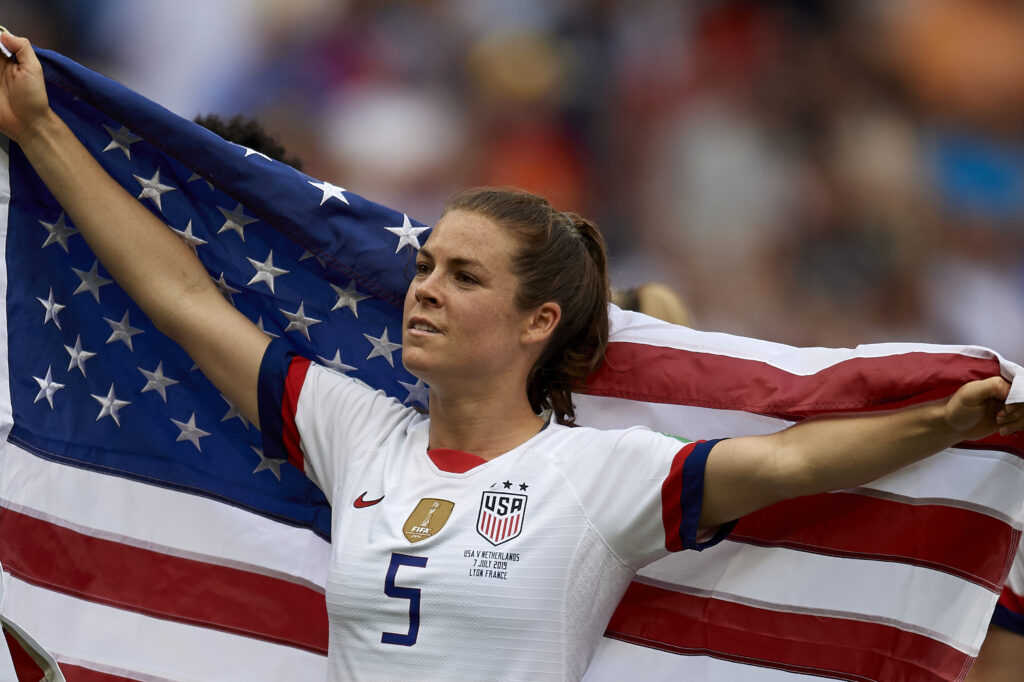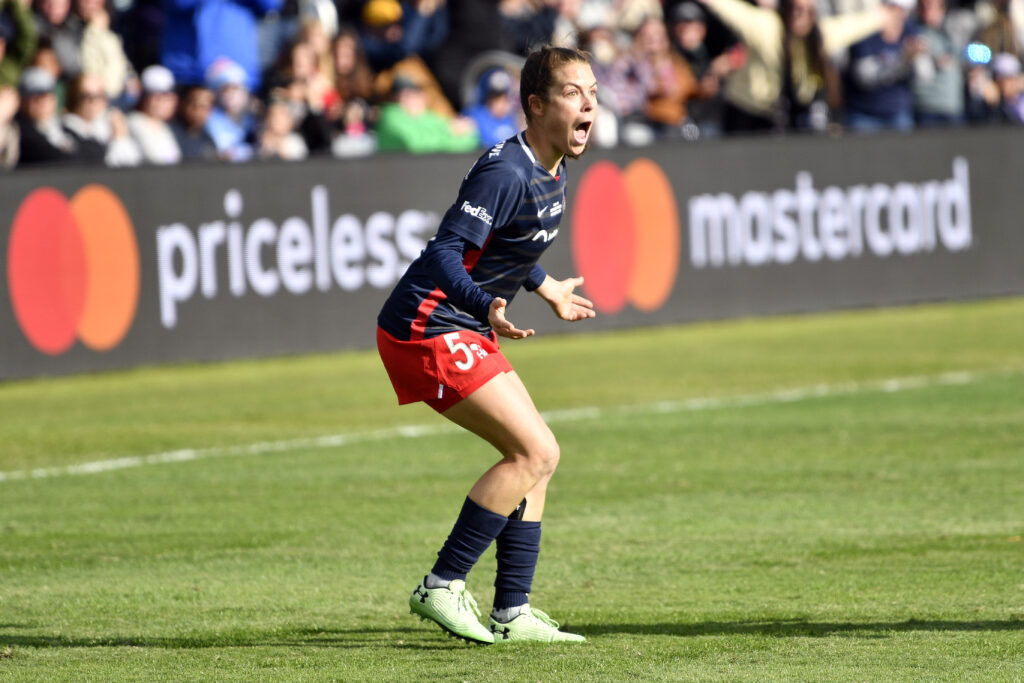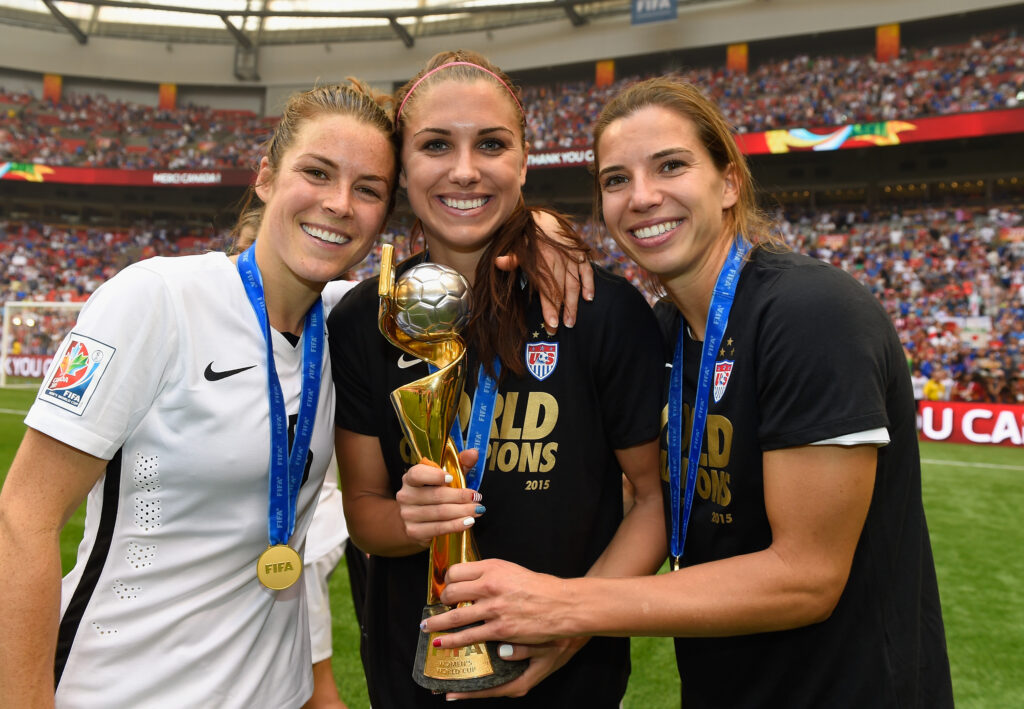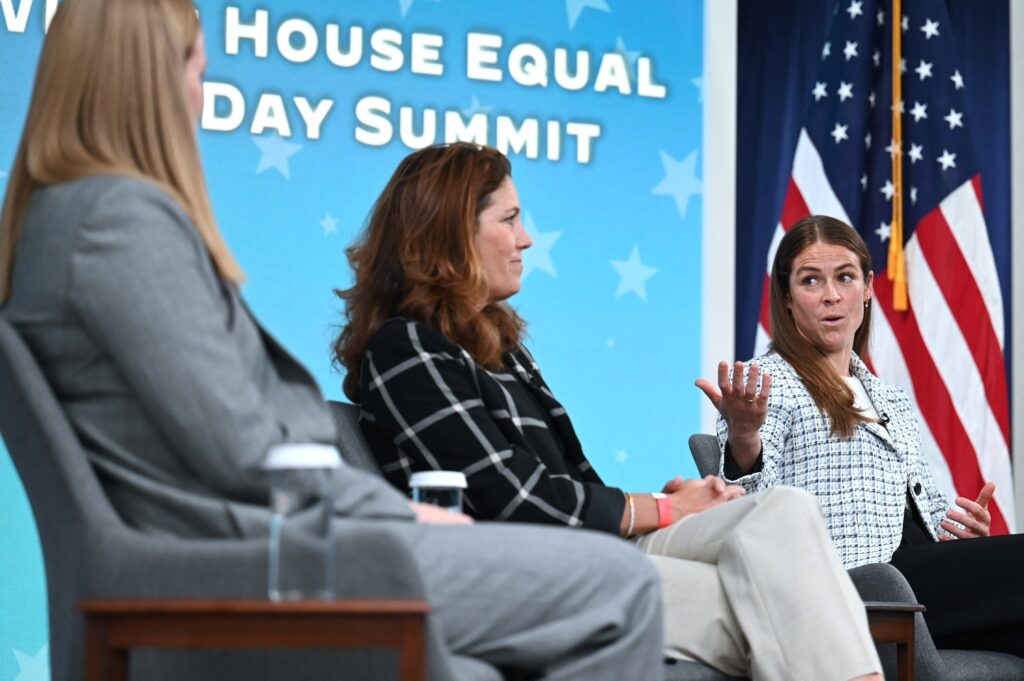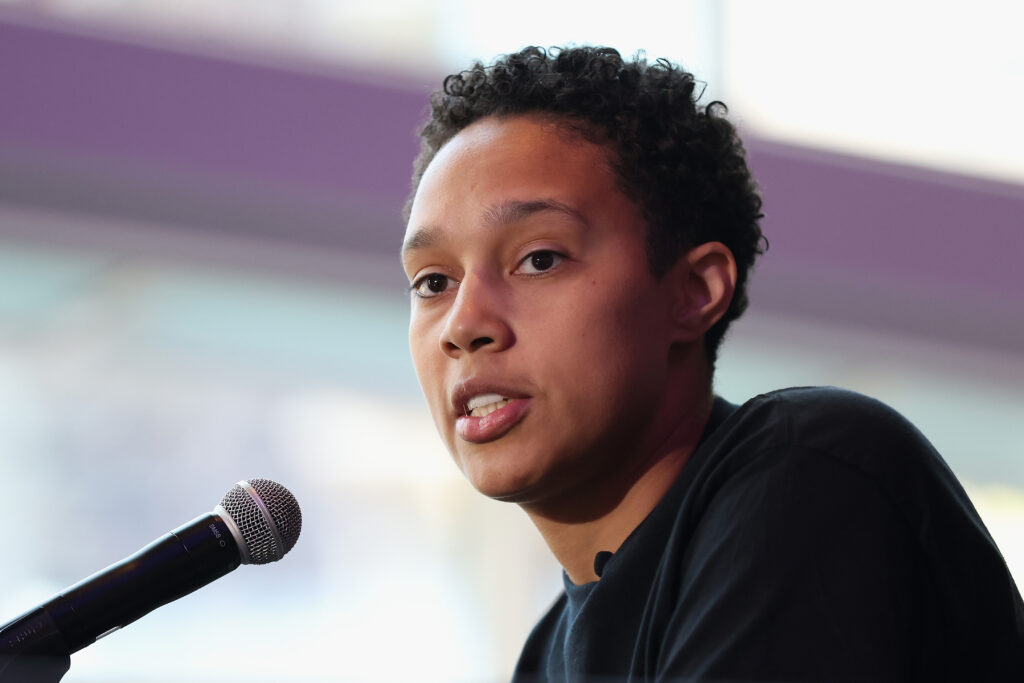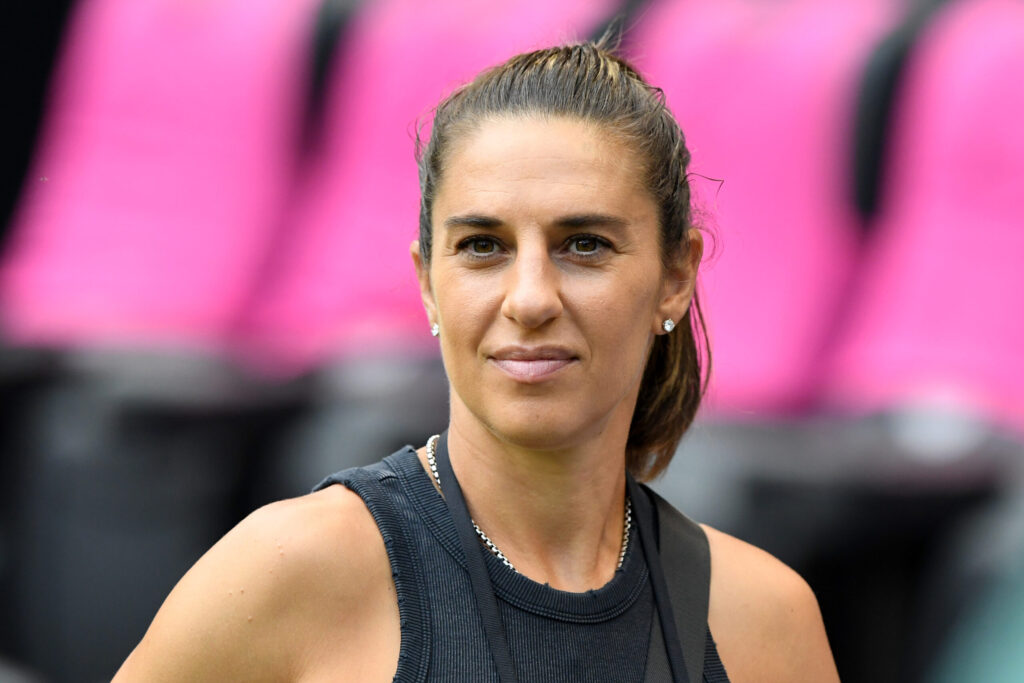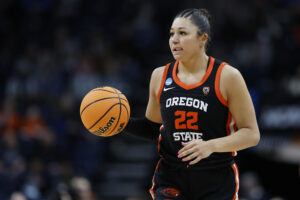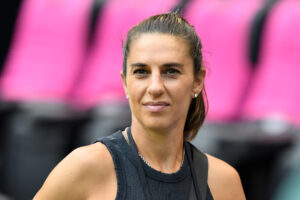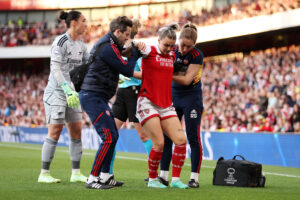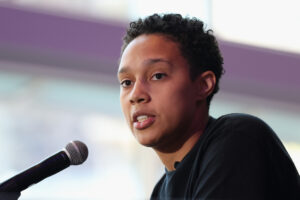Tegan McGrady is a defender for the Washington Spirit of the NWSL. A Stanford University graduate, she helped lead the Cardinal to the 2017 NCAA Championship. Below, she spoke with Just Women’s Sports about the ongoing protests, what makes this moment unique, and why it has given her hope for the future.
Why do you think it’s important to speak out now?
I feel that it’s important to speak out now, first of all, because I am half black and I feel that this is something that has hit me a lot harder than anything else in my life. Being black in this world and America, I’ve always understood the hardships that it comes with. I haven’t experienced all of those hardships myself, but I’ve seen the racism. It’s been pointed towards me. It’s been pointed towards my family. And there’s a time where you just have to speak out. You have to say how you’re feeling. I’ve been reluctant in years past to really speak up, because I’m not one who speaks up unless I have a strong desire or passion. But now I feel like it’s finally my turn to speak on something that I’ve lived. And I see how it’s affecting people around me for the better. There’s so many lists of books by black authors that people are sharing right now. In previous years, people might have been offended if a black person told them to read this or that book, but now we’re able to help people understand what the black community is saying and what they are describing as their oppression in this world.
Broadly speaking, what do you think needs to change? How do we move forward?
I think it starts with education. Young kids going to school today are being sheltered from some of the things that have happened in our history. Racism is not something that we should be shying away from. My mom is a first grade teacher, and I’ve been able to listen to her kids. They’re smart. They understand way more than we think they do. The fact that racism is a difficult topic just means that it needs to be more focused on. People try and say, “Oh, we don’t see color.” But if you don’t see color, then you haven’t really seen the history of this world, the history of this country. We need to talk about the fact that we do see color. And we need to talk about history in a way that includes everyone. Then we can move forward.
Yeah, it seems like when we were young, we were taught to be “colorblind,” but that’s not really the right approach.
Exactly. You can’t be color blind in this world because in order to understand the history of anyone in the world, you have to see color. But that doesn’t mean you have to see it in a way where one is better than the other. You can see color as representing different cultures, different people that we can learn from. Then you see that color isn’t a bad thing. Color is a great thing. It gives us a foundation to build a country on top of. And you can see that with what we’re doing now in the black community. We’re not asking to be seen as not black. We’re asking to be seen as black and equal.
You play a sport that is known to be pretty white. How has race intersected with your experience as an athlete? And how can soccer improve?
The crazy part is I never thought of it that way. I grew up in an area where I might have been on the more privileged side of the black community. And that’s why I myself have tried to take a step back and step outside my own privilege to understand the wider black community. I didn’t grow up with many black people playing soccer around me, but the ones that did, we were all very close. We all gravitated towards each other. It’s definitely hard when you get to the highest level and you look around a team and you don’t see anyone else who really looks like you. But I think as a society, we can change that. I wish I had all the answers, but I really think it starts with educating the younger generations, with giving younger girls the confidence that they can make it to the next level, no matter their race. It’s going to take a lot, but I believe that we have the resources and the people in this country to do it.
It’s always been super interesting because even during my time at Stanford, I was always trying to find where I fit in. If I truly fit in with the black community, if I truly fit in with the white community, if me being half black and half white sometimes staggered my understanding of where I come from or who I truly am. I felt stuck in the middle at some point. But ultimately, I feel like I’m blessed to be both. I feel like I can help bridge this gap. That’s where I think I can use my privilege and turn it into something where I can help bring people closer together.
Racism isn’t new. What do you think it is about this moment that has sparked such a widespread movement?
It could be multiple things. I think social media has such a big presence now. Now everyone can see these murders, they can hear the desperation in George Floyd’s voice when he says, “I can’t breathe.” And then I think there’s a reaction within the black community that’s simply, enough is enough. We have seen too much of this. We have felt too much of this. We’re putting our foot down. When you watch the full video, nine minutes is a long time. It really hits you. And I think for a lot of people in this country, it hit them hard. Everything finally snapped, and you had this waterfall effect where everyone saw how much it was affecting those around them. And that’s something we can’t be blind to. We have to be able to see that. We have to be able to talk about that.
And this is one of the first times in a long time where I’ve seen millions of people being willing to open up and talk about the problems this country is facing with race and inequality. You just hope this isn’t something that’s going to fizzle out. But I feel with so many voices that have spoken out, that I don’t know how something like this could fizzle out, because I don’t think in our lifetime that I’ve ever seen something this big really go the way that it has. It really gives me hope for the future. I mean, I’ve never spoken up about anything. So if I can speak up and other people can speak up and this keeps going, it gives me butterflies in my stomach to see where this could all lead to, especially with all the elections coming up. So much could change in this country within the next year, or even just the next three, four months down the line.
